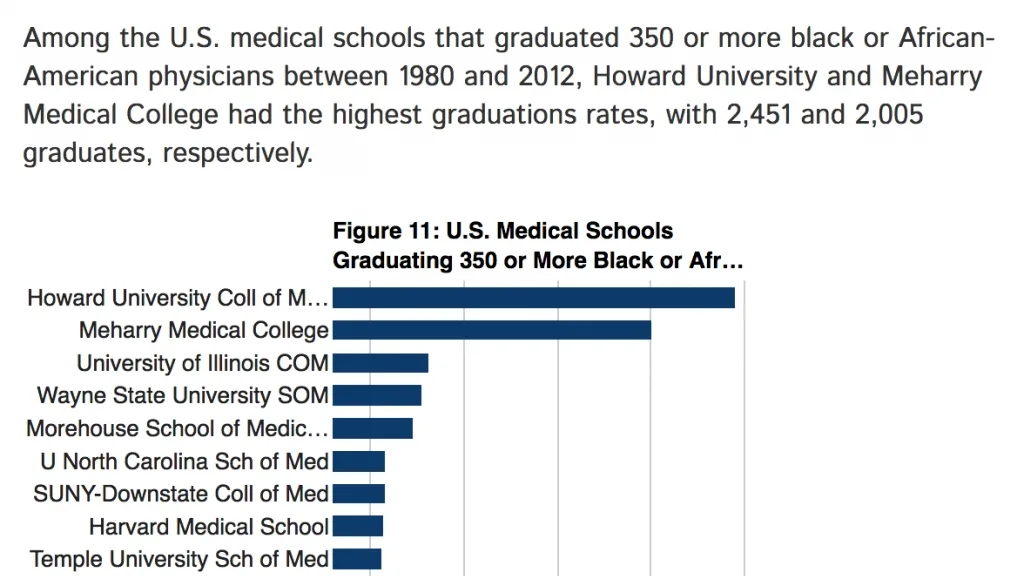
The Impact of HBCUs on Healthcare Diversity
Historically Black Colleges and Universities (HBCUs), despite making up only 3% of all educational institutions in the United States, are responsible for producing an impressive 70% of all Black doctors and dentists. This remarkable statistic underlines the significant role HBCUs play in promoting diversity in the healthcare profession and addressing health disparities. During Black History Month, the Minority Research Grant Program is supporting health equity research at HBCUs, further highlighting these institutions’ indispensable role in advancing healthcare and tackling racial health disparities.
HBCUs and Higher Education
A pivotal force in African American higher education, HBCUs contribute an estimated 20% of all African American graduates. Moreover, 25% of these graduates pursue degrees in STEM fields, emphasizing HBCUs’ commitment to fostering diversity in critical disciplines. Despite numerous challenges, HBCUs maintain competitive graduation rates, ensuring their students complete degrees and enter the workforce equipped with valuable skills and knowledge. In the academic year 2020-2021 alone, HBCUs conferred 48,171 degrees at various levels, further emphasizing their considerable contribution to higher education attainment among African American students.
Generous Donations Boosting HBCUs
Historic donations from philanthropists and organizations have been flooding into HBCUs. Notable contributions include $100 million gifts to Spelman College and the UNCF, while Bloomberg Philanthropies is investing $250 million into public high schools to address healthcare worker shortages. There has been a growing interest in funding HBCUs, with Blue Meridian Partners tripling its investment in the HBCU Transformation Project, and Black donors have been among the largest backers of HBCUs. Philanthropists like Reed Hastings, Patty Quillin, and MacKenzie Scott have made significant donations, with contributions reaching as high as $120 million for scholarships. Bloomberg is also investing in Black doctors, reflecting the positive impact of Black doctors on Black health outcomes.
HBCU Pharmacy Schools: A Pillar of the Healthcare Industry
HBCU pharmacy schools significantly impact the healthcare industry by producing highly skilled pharmacy professionals. Offering a unique blend of academic rigor, practical experience, and community engagement, these institutions prepare students for fulfilling careers in pharmacy. The curriculum spans a broad range of subjects from biochemistry and pharmacology to ethics and law, leading to a Doctor of Pharmacy (Pharm D) degree. Research opportunities range from drug discovery to public health policy, providing valuable hands-on experience. Various scholarships and financial aid options are available, making education at HBCU pharmacy schools more accessible. Graduates from these programs have made significant strides in healthcare, contributing to a more diverse workforce and a strong presence of African American pharmacists across the United States.
The Fight for Fair Funding
Despite their considerable contributions, HBCUs have historically been underfunded. The Biden administration called on 16 Southern governors to correct the underfunding of 16 land grant HBCUs in their states, estimating that these schools were underfunded by $1.3 billion from 1987 to 2020. Virginia State University (VSU), an HBCU, is estimated to be owed more than $277 million in state funding alone. Advocates like former Gov L. Douglas Wilder are pushing for increased funding for HBCUs, and VSU’s president hopes that the General Assembly will recognize the value of investing in HBCUs and be receptive to funding increases. Consistent public funding has a tremendous impact on scholarships, financial aid, and community uplift, and HBCUs play a significant economic role in rural America.

